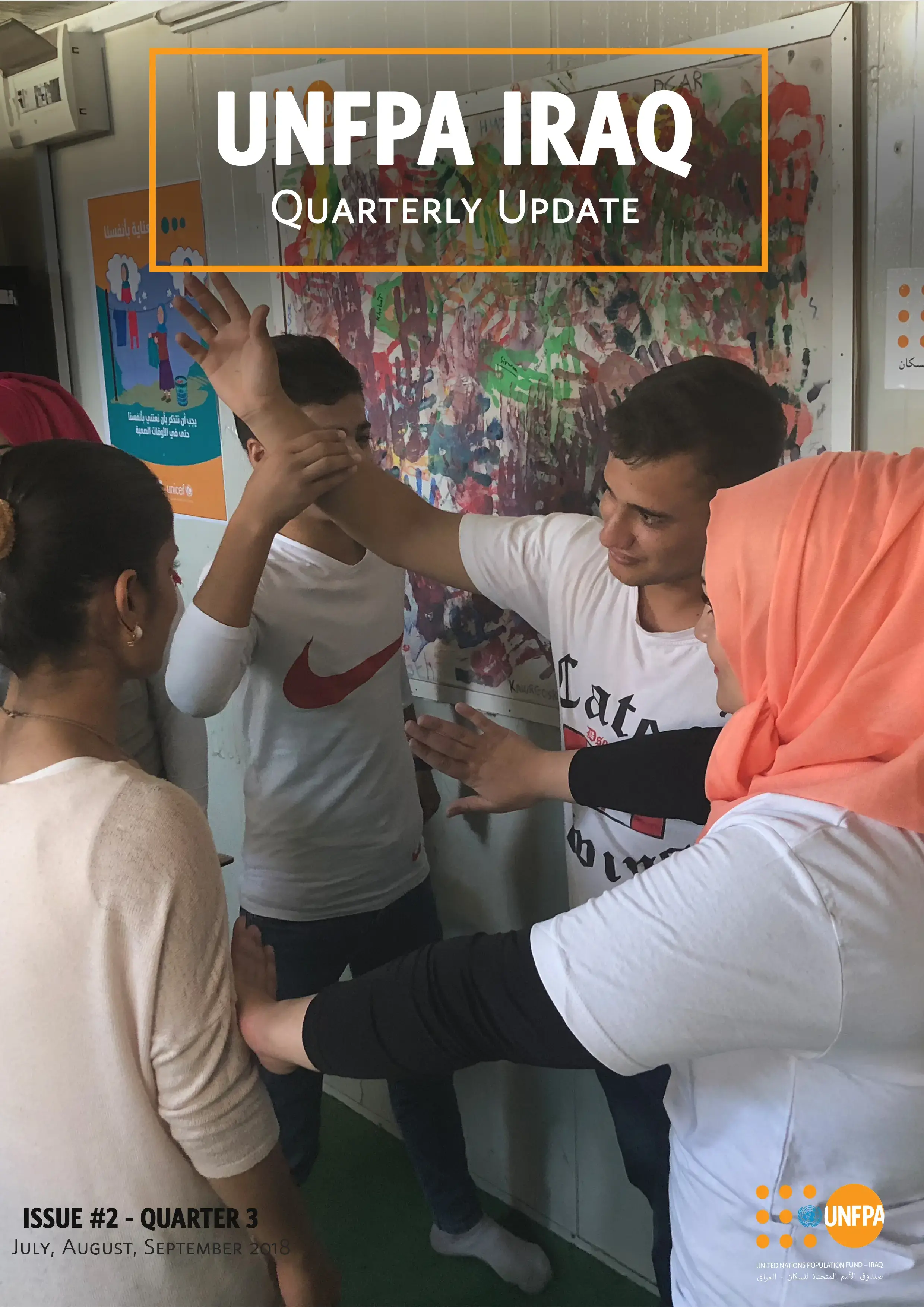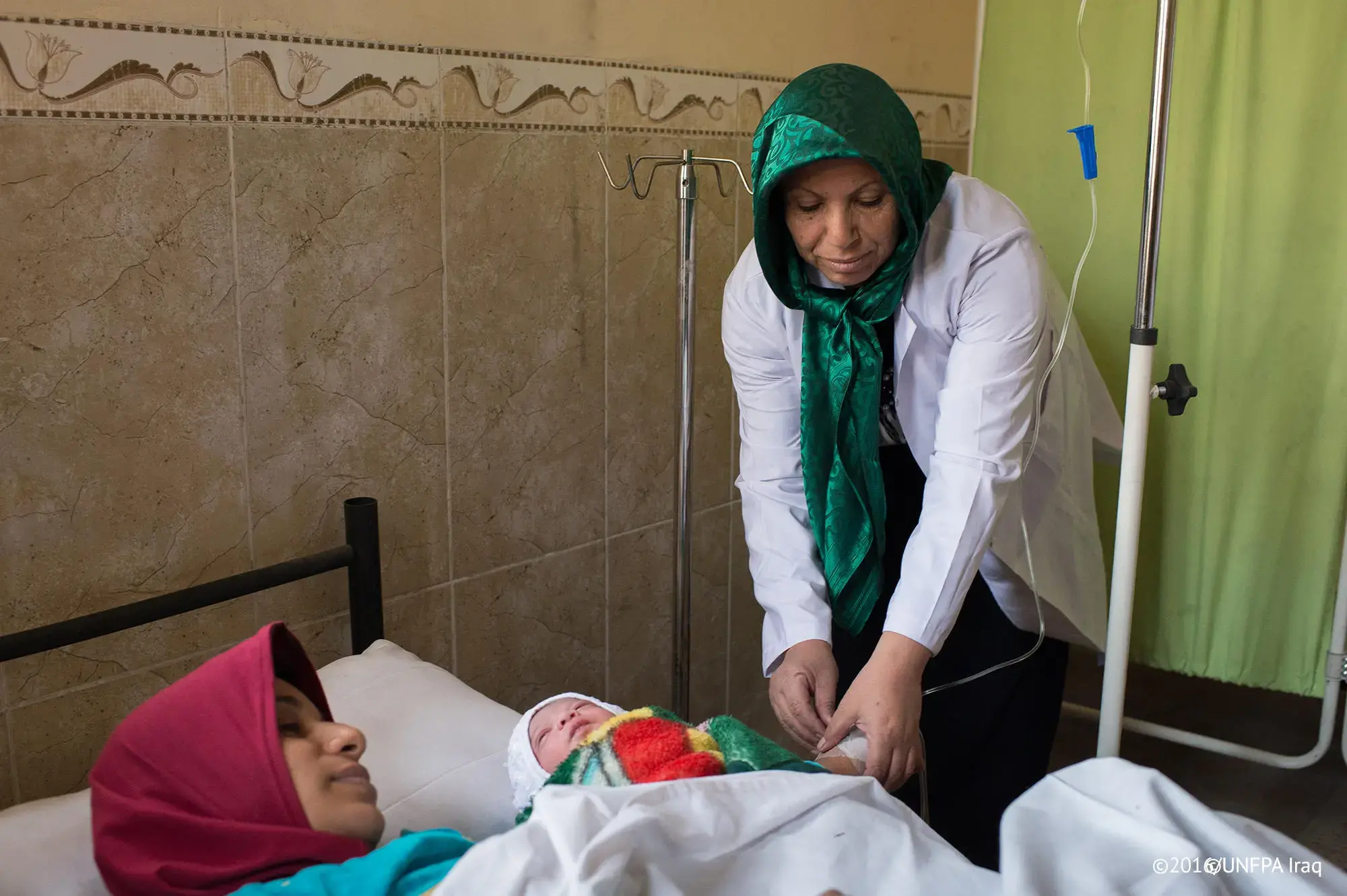(Baghdad, 17 October 2016): The intensification of military operations to retake the city of Mosul from the Islamic State in Iraq and the Levant (ISIL) could affect up to 1.5 million people in the city. Up to 1 million girls, boys, women and men may be forced from their homes, of which up to 700,000 may be in need of shelter assistance. Up to 200,000 people may be displaced in the first weeks of the operations. The humanitarian community, UN Agencies and NGOs, have been planning and readying assistance for months.
Protection concerns are at the forefront of the preparations of the humanitarian community. The UN Refugee Agency (UNHCR) and its protection partners have protection monitoring teams on the ground to identify and respond speedily to vulnerable IDPs including for civil documentation, family unity and protection interventions with authorities.
Children in Mosul have been exposed to horrific levels of violence, recruited or forced into the conflict and could now be separated from their families as they flee. The UN Children’s Fund (UNICEF) will be at the frontline of response, with mobile teams ready to respond to the most critical cases of mental and physical trauma among the displaced girls and boys and to provide protection from gender-based violence (GBV).
Humanitarian partners are focusing on preparing shelter in three priority areas south of Mosul where the first displaced families from Mosul will be accommodated. The International Organization for Migration (IOM) is constructing emergency sites which will initially accommodate over 70,000 people, and has 25,000 full winter non-food item kits prepared to meet the needs of 150,000 people. UNHCR has 50,000 emergency shelter kits available for 300,000 people. Outside of the priority sites, UNHCR has built five camps for 45,000 people and plans to have an additional six sites open in the coming weeks with a capacity of 120,000 people.
The World Food Programme (WFP) has rapidly scaled up operations and has enough food in stock to meet the immediate food needs of people fleeing from Mosul. WFP trucks are on standby and at the first sign of displaced families approaching safe areas, trucks will leave the warehouses. In an immediate emergency phase, WFP and its partners will provide life-saving ready-to-eat rations to newly displaced families and other urgently-needed humanitarian assistance as part of the UN Rapid Response Mechanism, managed by UNICEF and WFP in collaboration with the United Nations Population Fund (UNFPA) and a consortium of NGO partners.
UNICEF will distribute clean water, sanitation and immunization for the thousands of families in the camps and sites. Family hygiene kits for 255,000 people are ready for distribution and the UNFPA has positioned 35,000 dignity kits for women and girls for distribution through humanitarian partners.
The World Health Organization (WHO) has prepositioned medication and emergency kits to respond to the needs of 350,000 people and will provide 30 mobile clinics to ensure primary health care. Referral capacities were augmented with 25 new ambulances. UNFPA has also put in place 25 reproductive health mobile teams and established 20 health facilities, including delivery rooms for pregnant women. To ensure psychosocial support, emergency case management and referrals for women, adolescent girls and survivors of GBV, UNFPA has mobilised 23 mobile teams. IOM will carry out psychosocial activities to address the mental health needs of displaced persons, and mobile health teams will be deployed as a first line response to their medical needs.
NGOs and local responders are critical to the response on the ground. The United Nations works closely with humanitarian partners and implements many of their programmes and distributions via national and international NGOs. The majority of these NGO partners are active members of the NGO Coordination Committee of Iraq for Iraq (NCCI).
“These joint efforts are further evidence of the months of careful planning, preparation and our commitment to deliver assistance to the people from Mosul,” said Lise Grande, the Humanitarian Coordinator for Iraq. ”We have prepared as efficiently as we could with the available resources.”
Preparations for Mosul came in a context of underfunding for the humanitarian operation in Iraq. In July, the humanitarian community launched a flash appeal requesting USD284 million to prepare for the Mosul operation. Although generous contributions have been received, most of this funding has only just started to arrive. In early October, updated urgent requirements showed that USD367 million will be needed to finalize preparations and provide life-saving assistance to families during the first three months of their displacement.
In Iraq, more than 10 million Iraqis currently require some form of humanitarian assistance, including 3.3 million civilians according to IOM who are internally displaced, many for the second or third time. By year’s end, depending on the scale and duration of the Mosul operation, as many 12 to 13 million Iraqis are expected to require humanitarian assistance.





